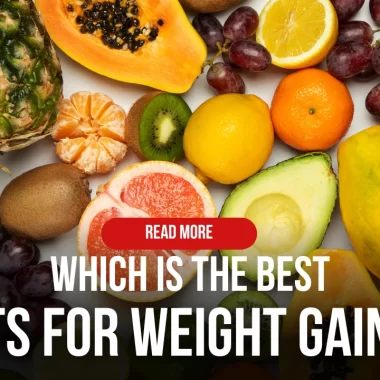Introduction:
When it comes to achieving weight gain goals, protein plays a vital role. Protein is the building block of muscles and is essential for muscle growth and repair. However, with so many protein options available in the market, it can be overwhelming to determine which one is best for weight gain. In this blog, we will explore various protein sources and help you make an informed decision based on your specific needs.
Table of contents
Top 6 Supplements For Weight Gain
Best Whey Protein for Weight Gain
Whey protein is one of the most popular choices for weight gain due to its fast digestion and high bioavailability. It contains all the essential amino acids necessary for muscle synthesis and recovery. Whey protein is derived from milk during the cheese-making process and is available in concentrate and isolate forms. It is recommended for individuals looking for rapid muscle recovery and growth.
Whey Protein – Uses, Side Effects, and More
Casein Protein
Casein protein, also derived from milk, is known for its slow digestion and sustained release of amino acids into the bloodstream. This slow-release property makes it an excellent choice for prolonged periods without food, such as before bed. Casein protein provides a steady supply of amino acids to the muscles, reducing muscle breakdown and supporting muscle growth.
Soy Protein
Soy protein is derived from soybeans and is a suitable option for vegetarians and vegans. It contains all the essential amino acids and is rich in glutamine, arginine, and BCAAs. Soy protein has been shown to promote muscle protein synthesis and aid in weight gain. Additionally, soy protein offers various health benefits, including cholesterol reduction and improved heart health.
Mass Gainers
Mass gainers are protein supplements specifically formulated for individuals struggling to gain weight. They contain a blend of protein, carbohydrates, and sometimes fats, providing a high-calorie intake to support weight gain. Mass gainers are an excellent choice for those with a fast metabolism or difficulty consuming enough calories through regular meals.

Plant-Based Protein
Plant-based protein sources, such as pea, rice, hemp, and quinoa protein, have gained popularity in recent years. These proteins are often combined to provide a complete amino acid profile. Plant-based proteins are easily digestible, free from common allergens, and suitable for individuals with lactose intolerance or dairy allergies.
Blended Protein Best Protein for Weight Gain
Blended protein supplements combine different protein sources, such as whey, casein, and plant-based proteins, to provide a balanced amino acid profile. These blends offer the advantages of different proteins in one convenient product. They are ideal for individuals looking for a versatile protein supplement for various times of the day or specific goals.
Considerations
Personal dietary restrictions and allergies: Ensure the protein source aligns with your dietary needs. Digestibility and tolerance: Some individuals may experience digestive issues with certain protein sources. Pay attention to how your body responds. Quality and purity: Look for reputable brands that undergo third-party testing to ensure product quality and purity. Cost: Protein supplements can vary in price, so consider your budget and the number of servings provided per container
Conclusion
Selecting the best protein for weight gain depends on personal preferences, dietary requirements, and individual goals. Whether you choose whey protein, casein protein, soy protein, mass gainers, plant-based protein, or blended protein, ensure it fits your needs and supports your weight gain journey. Remember, consistency, proper nutrition, and regular exercise are crucial for achieving optimal results. Consult with a healthcare professional or registered dietitian to determine the most suitable protein source for your specific needs.
Related Post
FAQ’s for Best Protein for Weight Gain
Ans: When it comes to weight gain, protein sources that are high in calories and contain essential amino acids are ideal. Some of the best options include lean meats like chicken and turkey, dairy products like Greek yogurt and cottage cheese, legumes such as lentils and chickpeas, and protein-rich grains like quinoa and amaranth.
Ans: Whey protein is often considered one of the best options for weight gain due to its high biological value and quick absorption. It contains all essential amino acids and is easily digested by the body. However, it’s important to note that individual preferences and dietary restrictions may vary, so it’s best to consult with a healthcare professional or registered dietitian to determine the most suitable protein source for your specific needs.
Ans: Yes, plant-based proteins can certainly help with weight gain. While they may not have the same amino acid profile as animal-based proteins, combining different plant-based protein sources can provide a complete range of amino acids. Additionally, plant-based proteins often come with other beneficial nutrients and fiber that can support overall health and digestion.
Ans: The recommended protein intake for weight gain depends on various factors, such as your body weight, activity level, and overall goals. As a general guideline, aiming for 1.2 to 2 grams of protein per kilogram of body weight per day is often recommended for individuals looking to gain weight. However, it’s essential to work with a healthcare professional or registered dietitian to determine the most appropriate protein intake for your specific needs.













